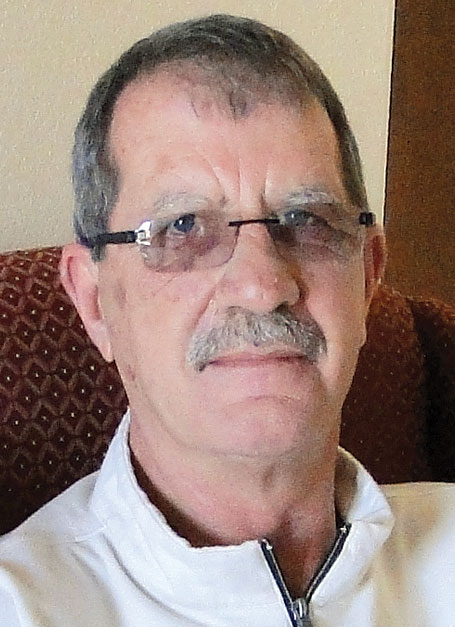
Lew and Jackie Thompson are just beginning to develop a registered Angus herd on family land in Huntsville, Ark.
When Lew’s grandfather died, the land was divided amongst the sons. Several years ago Lew finished purchasing back the divided parcels to re-create the old family farm. The total farm contains additional acreage in Clifty, Ark., and Hinesville, Ark., making up more than 1,000 acres.
“I made my career in the poultry trucking industry even though I was raised on a farm,” Lew said. “One of my goals, however, was to reunite the land. I had all this land and wanted to do something with it. Going back to my agricultural roots just made sense. Fortunately, my brother Ronnie and son Josh are knowledgeable farmers and manage the development of the cattle operation.”
The Thompsons started their herd three years ago after buying their starter herd during a special Angus sale at a nearby livestock market. The new herd consisted of 75 bred heifers in their third term from the same herd, and all were virtually identical.
Only three of the new mommas lost calves during birth, two because they had twins. The Thompson’s kept 25 heifers and chose not to breed them until they were 22 months old to ensure the best possible calves. Those calves not retained were sold when they were about 500 pounds, weaned, castrated and vaccinated.
The herd currently contains 160 mommas with an end goal of 250 to 300 within the next few years.
Because time is a critical issue for the new operation, the Thompsons decided to use only controlled natural breeding with spring calves, at least for now.
Four registered Angus bulls were purchased from nearby ranchers to meet their breeding needs. Ronnie’s selection criteria included a smaller head size, a short frame, and birth weights of 85 to 95 pounds when selecting them.
“The bulls did their job well and quickly,” Ronnie said. “We’re looking forward to the new calves from our own heifers which should be as uniform as the mommas who have barely a 20-pound difference among them.”
For now, most heifers will be kept for expansion with culling decisions made by visual examination with a preference for straight back and legs.
The farm produces its own hay, 750 to 1,000 round bales per year, enough to last two years if a drought occurs.
Hay ground is fertilized with poultry litter or commercial fertilizer on a rotational basis and as determined by soil testing. Weed control is handled through broadcast or spot spraying with thistles being the most persistent problem.
The Thompson family farm is rich with natural spring water; enough, according to Lew, to “supply a whole town.”
Both Ronnie and Lew attribute part of their success with their young herd to high-quality water.
“Cattle thrive on good water just the way people do, and this is the water I grew up with,” Ronnie said.
Currently, Lew works 12 to 16 hours a day at the trucking company. The business is a family one with Ronnie also working in the business but taking off as needed to care for cattle. The poultry trucking business is 75 percent regional, which means the drivers are home almost every night.
Hauling turkeys is a significant part of the trucking operation. Chicks are picked up in North Carolina and driven straight to the Ozarks for delivery. This is possible because those trucks have a team of rotating drivers making downtime unnecessary. The company provides hauling for every step of the turkey industry including transportation to processing plants and to retailers when refrigerated trailers are used.
Lew is looking to retire in the next five years or so, when he plans on taking a more active role in the cattle operation.
“Right now the cattle are a small part of our total business profile and more of an outside interest,” Lew said.







